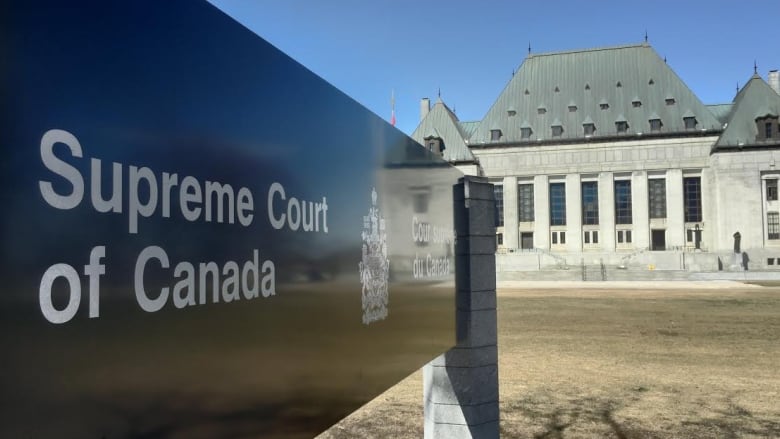Lawyers warn court delays are creating black hole in Canada's justice system

Justice might think she is swift and fair, but in Canada court delays are endemic. The president of the Ontario Crown Attorneys Association is warning that thousands of serious charges are at risk of being tossed out of the courts because of delays.
In January a motion was filed by a lawyer of a Gatineau, Que., man facing three counts of first-degree murder to have the charges stayed because it has taken five years to get to trial. The motion will be heard Feb. 22.
And in Ontario, charges against a minor accused of sexual assault were stayed in January by a judge because it was found that the teen's constitutional right to a speedy trial had been violated. The judge also cited a Supreme Court ruling from the summer.
Last July, the Supreme court issued the "Jordan decision", which set strict new deadlines on the justice system. Less serious offences must now be wrapped up within 18 months and more serious charges, including murder, have a 30 month deadline.
'Jordan decision' sets strict trial guidelines
But the decision has done more than just shed light on the chronic issue of cases being dragging on in courts across the country. It's resulted in charges being stayed and cases thrown out — from impaired driving and drug trafficking, to aggravated sexual assault, and even murder.
Antonietta Raviele, a former Crown prosecutor who now practices privately in the areas of criminal defence and mental health law, tells The Current's guest host Laura Lynch that the court delays comes down to a serious lack of resources.

But Daniel Brown, a criminal defence lawyer says it's not just about a lack of resources.
"We have many courtrooms that simply don't have enough judges to try the cases — [but] that's one issue ... Over the last 10 years there's been a number of changes to legislation that have really disincentivize pleading guilty," Brown tells Lynch.
"The reality is that instead of resolving our cases, more cases are going to trial than ever before because there's no way to simply tailor an appropriate sentence for those who wish to plead guilty."
A fundamental issue Brown says has attributed to delay problems in court is the elimination of sentences that can be served through house arrest — usually cases for nonviolent offenses like drug cases or fraud cases.
Pressure on Crown prosecutors is 'immense'
As a Crown prosecutor in 2009, Raviele says the pressure at that time to move matters forward was extremely significant and "that's pressure you carry with you every day into court."
Beyond getting through the heavy case loads, there are now no new positions being created to replace people retiring or quitting.
"The [Crown prosecutor's] job isn't just to resolve matters but it's to resolve matters in a way that is meaningful and significant in terms of justice," Raviele tells Lynch.
"In terms of the punishment that is being accepted and acknowledged, and the impact that it's going to have … the resolution that it is meant to bring to the table has to be something that's more than just 'I'm selling the farm because I don't have the time to bring this thing to trial.'"
"So that kind of pressure tends to undermine what most people consider to be justice for crown prosecutors."
The Current did request an interview with the Minister of Justice, Judy Wilson-Raybould, but the request was declined.
Listen to the full conversation at the top of this web post.
This segment was produced by The Current's Kristin Nelson and Winnipeg network producer Suzanne Dufesne.